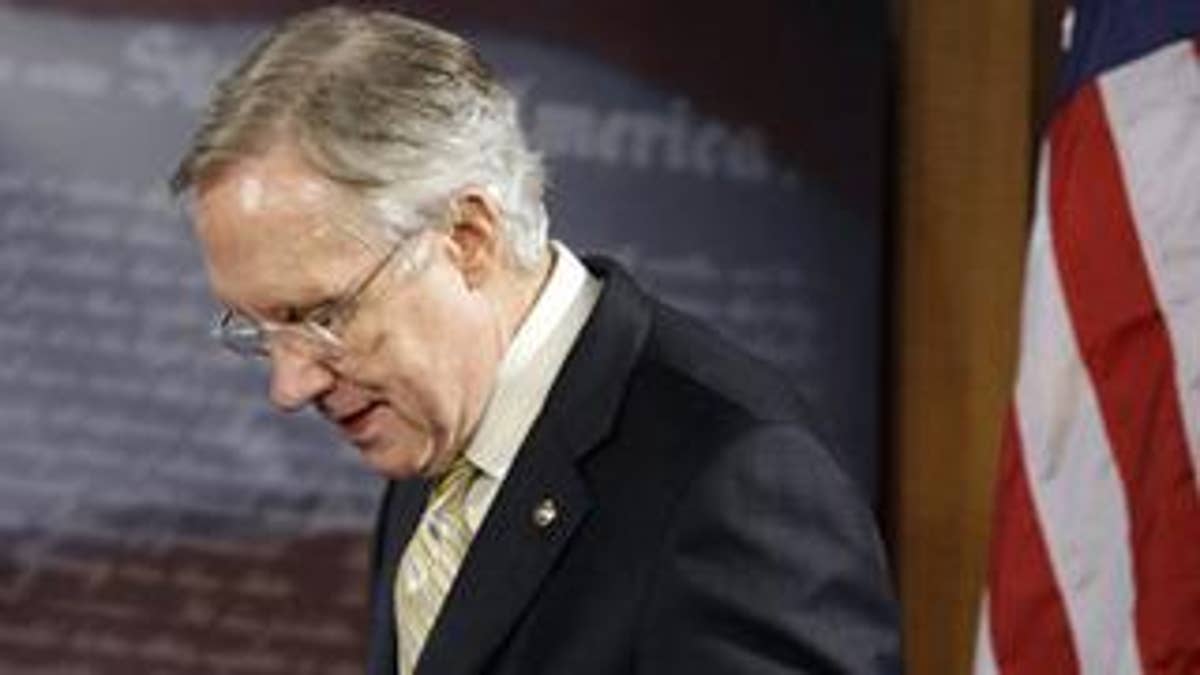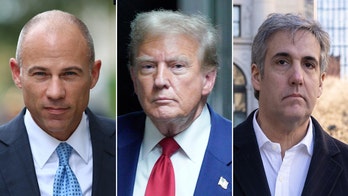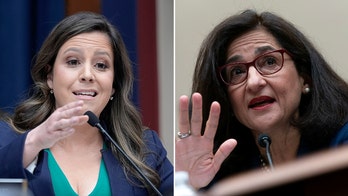
Senate Majority Leader Harry Reid was struggling Tuesday to drum up the support necessary to pass a health care reform bill that includes a government insurance plan, with key moderate Democrats backing away from the package ahead of a crucial vote.
Independent Democratic Sen. Joe Lieberman said Tuesday that he would support a Republican filibuster against the bill unless it's changed. Key Democratic moderates including Sens. Evan Bayh, D-Ind.; Ben Nelson, D-Neb.; and Blanche Lincoln, D-Ark., also said they were uncertain how they'd vote, expressing deep reservations about the public plan.
And Sen. Olympia Snowe, R-Maine, the only Republican to have voted for any version of health care reform, reiterated Tuesday that she's "disappointed" in Reid's proposal and will not support the government option.
The wavering, and in some cases crumbling, support for the package demonstrates how much of a gamble the Nevada Democrat took by unveiling a bill Monday that includes the controversial government plan but has no Republican backing. And it's a reminder of the warnings made months ago by Senate Democrats like Kent Conrad, D-N.D., that a public plan simply does not have the votes to pass and should not be included in the final bill.
With a 60-vote Democratic majority, Reid would need all 60 of them to cut off debate and bring the bill for a vote. Though he was known to be short of the 60-vote threshold before Monday's announcement, some Democrats hoped that by calling it a fait accompli, he could convince those lawmakers with reservations about the bill to vote at least to cut off debate -- even if they planned to vote against the bill in the end. Then Reid would need only 51 supporters to pass the bill.
Though Reid's proposal was pitched as a compromise to appease conservative Democrats, lawmakers like Lieberman said they are still concerned it would add to the deficit and leave taxpayers on the hook for bailing out the government.
"If the bill remains what it is now, I will not be able to support a cloture motion before final passage," Lieberman told reporters, adding that he's willing to vote to bring the bill to the floor for debate.
Reid's proposal would create a national insurance plan that state legislatures can vote to opt out of if they can demonstrate an alternative. The plan would be set up with government seed money and then run by a private, not-for-profit board and supported by premium payments.
"The devil's always in the details," Nelson said, expressing concerns about how hard it might be for states to opt out of the government plan.
"The question is, is this enough flexibility for states to account for their own circumstances? And the answer to that is perhaps. But I'd like to wait to see what's in the language," Bayh said, raising concerns that some provisions could "substantially increase the deficit."
The Associated Press reported that Lincoln opposes the government plan, though she would not say whether that opposition would cause her to vote against Reid's bill.
Asked whether she would vote with Democrats to kill a GOP filibuster, she told Fox News: "I've not promised anything to anybody."
The shaky Democratic support makes Snowe, and her demands, all the more important.
Snowe wanted Reid to include a plan that would "trigger" a government option down the road if the insurance industry does not meet certain benchmarks. That he didn't "sends a terrible message" that Democrats have no interest in working with Republicans, Snowe said.
But she said Reid told her the "trigger" was a "pretty doggone good idea," even though he chose to disregard it.
Without the necessary support, Reid could come crawling back. The trigger is considered a potential fallback for the majority leader if it becomes absolutely clear that he cannot muster the votes for the "opt out" version.
For now, Reid and his allies are expressing confidence.
Sen. Max Baucus, D-Mont., chairman of the Senate Finance Committee, said Tuesday that a "sense of inevitability" grows every day surrounding the health care bill and that Democratic leaders will "fight" for the 60 votes.
Reid said he expects Lieberman to work with Democrats during the amendment process. And he suggested Snowe was simply not cooperative on the health care bill, comparing the negotiations to dancing without a partner.
"I wanted to dance, but she wouldn't get up," Reid said.
The bill seemed to be progressing more smoothly on the House side, where House Speaker Nancy Pelosi enjoys a substantially wider majority. Negotiations there have centered more on what kind of public plan will be included, rather than whether a public plan can get the votes to pass.
Rep. Chris Van Hollen, D-Md., said Tuesday that Democrats should be able to unveil a government-run health plan in the next one or two days. House Majority Leader Steny Hoyer also indicated the House may need to meet in the days leading right up to Thanksgiving in order to get the bill done.
Fox News' Trish Turner contributed to this report.




